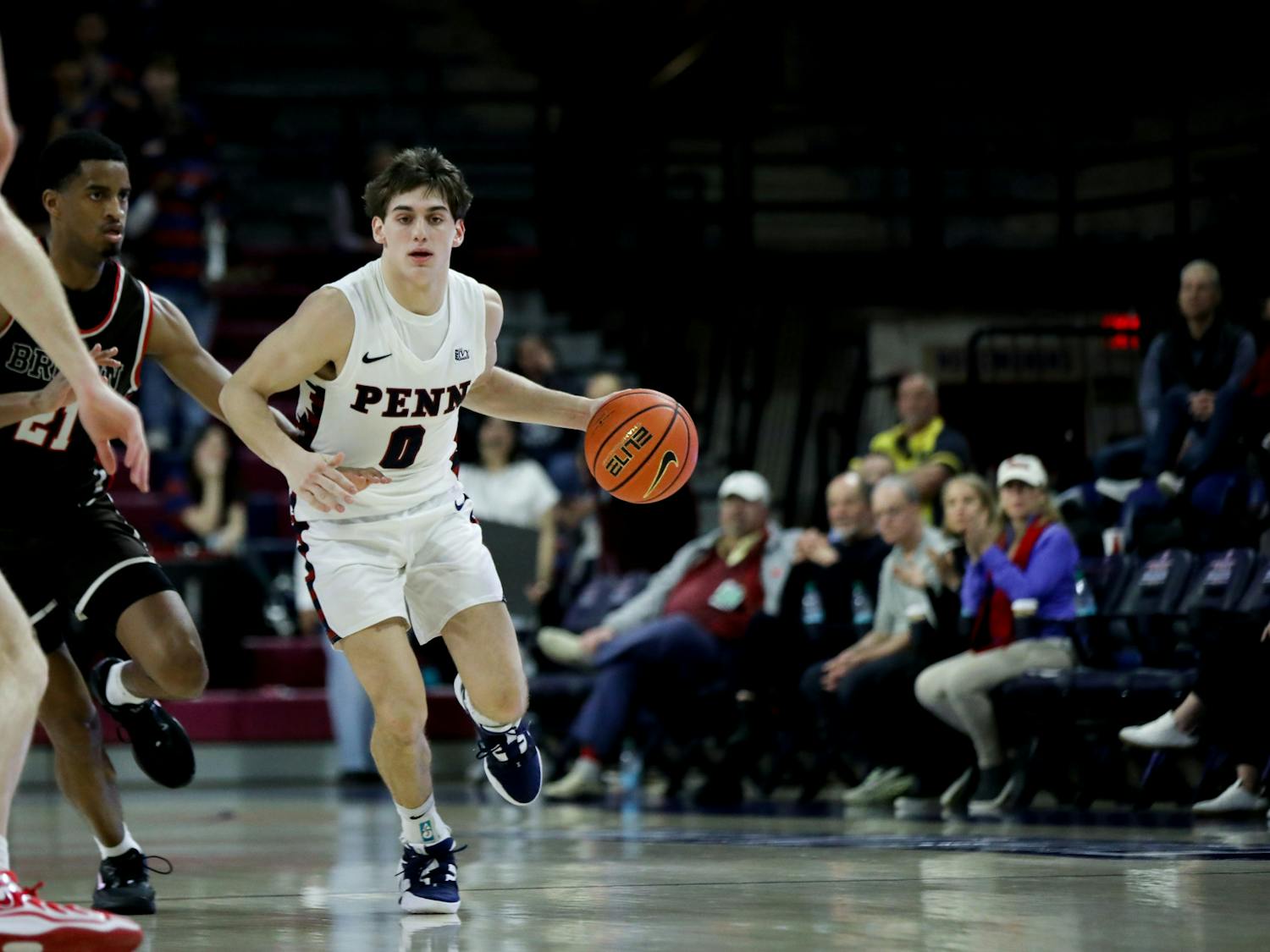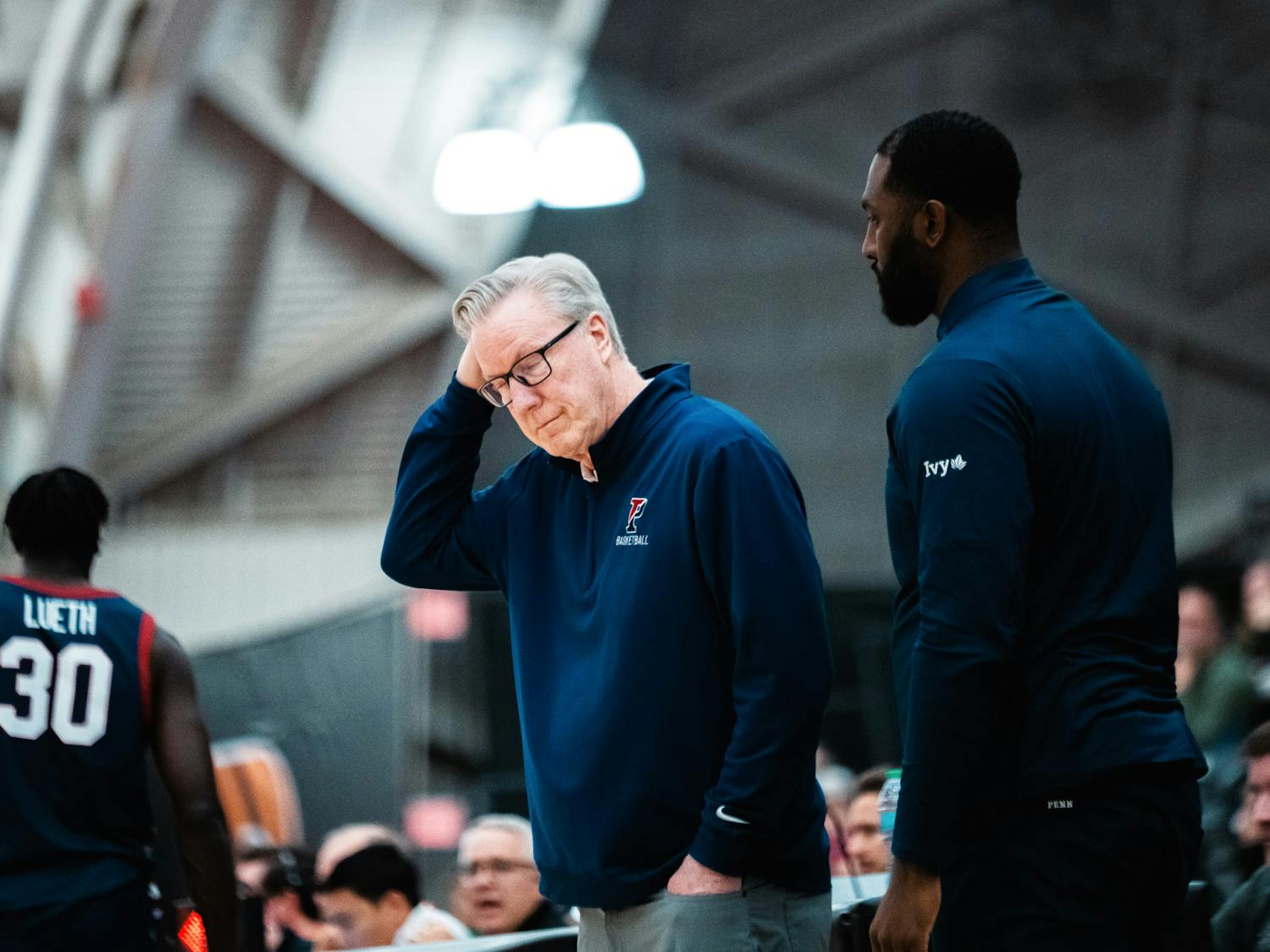On June 17, the Council Of Ivy Group Presidents decided to change long-standing rules for the Ivy League in the areas of admissions and athletes' time off.
One of the changes to league admissions rules was raising the minimum academic index by two points.
The academic index is a numerical formula that takes into account SAT and SAT II scores, as well as high school class rank. In order to be recruited to an Ancient Eight school, an athlete must meet a minimum academic index score.
The biggest changes to admissions, however, involve Ivy League schools monitoring one another to ensure that each is following proper procedure.
Prior to June's legislation, when the league's deans of admissions met in the spring and fall, they only checked to make sure that recruited athletes in basketball, football and ice hockey met the minimum league requirements.
The new legislation requires the schools to monitor all Ivy sports that are played by five or more schools.
Penn President Judith Rodin, who was involved in the decision-making process, is very pleased with this monitoring.
"This new procedure takes a tighter look at all of the sports and all of the recruited athletes," she said. "In my view, that is significantly beneficial to the University of Pennsylvania and its athletic programs."
Two rules were made to simplify the process where schools verify one another's admissions process.
The first states that, in any four-year period, there will be a limit on the total number of recruits per school.
This number will differ depending on how many teams a certain school has.
"Penn and Columbia's number, for example, will be slightly lower because they have no [varsity] hockey," Ivy Executive Director Jeffrey Orleans said.
It will be up to each school to decide exactly how to distribute this number of recruits from sport to sport.
Penn will most likely have to cut recruits to certain teams in order to meet this designated number. Some believe that this will decrease the competitiveness of these squads.
Orleans disagrees.
"We always have and always will encourage unrecruited students to join these teams," he said.
Orleans said that the reason the Council decided to make these limits to recruits was to ensure competition within the Ancient Eight.
"The larger the school is, the less concern they have about the number of extra athletes they recruit," he said. "We're concerned with institutional economy, but, at the same time, we are competitors."
The second requirement that all schools will have to follow is that the average academic index of athletes must be equal to or better than that of the average academic index of the entire school, minus one standard deviation.
This rule is meant to ensure that athletes are held to the same academic standards as the entire student body.
A statement by the Council's outgoing and incoming chairs, Presidents Hunter R. Rawlings of Cornell and James Wright of Dartmouth said: "These actions... renew and deepen our long-standing commitment to the principle that students who are recruited as potential athletes at each Ivy institution should be representative of that institution's overall undergraduate student body."
The changes to student-athletes' time off revolves around an old statute which required there to be at least 49 consecutive off-season days with no required or coach-supervised activities for teams.
The Council decided to amend this "seven-week rule," eliminating the consecutive-days clause. Now teams can allocate the 49 days as they see fit throughout the year, combining days off in the offseason with scheduled days off during the competitive season.
Orleans explained that these changes had been contemplated for almost 15 years.
"We haven't done a comprehensive review of admissions in the last 20 years," he said. "There is no sense of crisis."
Orleans is confident that these changes will not affect the competitiveness of the Ivy League versus other conferences.
Rodin agrees.
"We will be net beneficiaries because of these changes."








